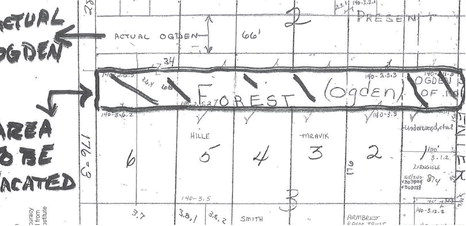City starts process to eliminate a road in name only


Forest St. was planned to run next to Ogden St., but was never built
The city of Medford began the process of vacating Forest Street between Fou...


Forest St. was planned to run next to Ogden St., but was never built
The city of Medford began the process of vacating Forest Street between Fou...